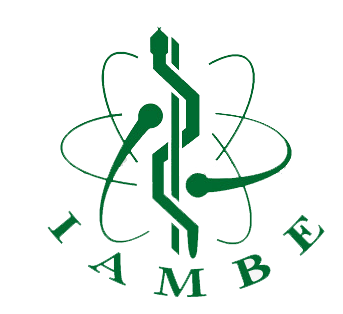Steven M. Wright
by seuh8j4 | Feb 21, 2024
LnRiLWZpZWxke21hcmdpbi1ib3R0b206MC43NmVtfS50Yi1maWVsZC0tbGVmdHt0ZXh0LWFsaWduOmxlZnR9LnRiLWZpZWxkLS1jZW50ZXJ7dGV4dC1hbGlnbjpjZW50ZXJ9LnRiLWZpZWxkLS1yaWdodHt0ZXh0LWFsaWduOnJpZ2h0fS50Yi1maWVsZF9fc2t5cGVfcHJldmlld3twYWRkaW5nOjEwcHggMjBweDtib3JkZXItcmFkaXVzOjNweDtjb2xvcjojZmZmO2JhY2tncm91bmQ6IzAwYWZlZTtkaXNwbGF5OmlubGluZS1ibG9ja311bC5nbGlkZV9fc2xpZGVze21hcmdpbjowfQ==
TW9udHNlcnJhdDo2MDAscmVndWxhciw1MDA=
LnRiLWZpZWxkW2RhdGEtdG9vbHNldC1ibG9ja3MtZmllbGQ9ImVjMWNjYjkwNWI1ZTBmMGM1Y2M3YjhlNzhhMjU5OWQxIl0geyBmb250LXNpemU6IDE0cHg7Zm9udC1mYW1pbHk6IE1vbnRzZXJyYXQ7Zm9udC13ZWlnaHQ6IHJlZ3VsYXI7IH0gIC50Yi1maWVsZFtkYXRhLXRvb2xzZXQtYmxvY2tzLWZpZWxkPSI2ZjczYjQzMWRlYjhlN2MzZDhmYTY3OTNiYWEyNzk0ZSJdIHsgZm9udC1zaXplOiAyMHB4O2ZvbnQtZmFtaWx5OiBNb250c2VycmF0O2ZvbnQtd2VpZ2h0OiA1MDA7IH0gIC50Yi1maWVsZFtkYXRhLXRvb2xzZXQtYmxvY2tzLWZpZWxkPSI1NzVjMDY5MGY2ZTFhYjlmYWMzMGM5MWJjMzZlYjZmYSJdIHsgZm9udC1zaXplOiAyMHB4O2ZvbnQtZmFtaWx5OiBNb250c2VycmF0O2ZvbnQtc3R5bGU6IGl0YWxpYztmb250LXdlaWdodDogcmVndWxhcjt0ZXh0LWFsaWduOiBsZWZ0OyB9ICAudGItZmllbGRbZGF0YS10b29sc2V0LWJsb2Nrcy1maWVsZD0iNjY1MjA4ZjdiZTc1MWU3MjkxYzNhNzI1YjY1YjdlYjciXSB7IGZvbnQtc2l6ZTogMzZweDtmb250LWZhbWlseTogTW9udHNlcnJhdDtmb250LXdlaWdodDogNjAwO2xpbmUtaGVpZ2h0OiA1MHB4OyB9ICAudGItaW1hZ2V7cG9zaXRpb246cmVsYXRpdmU7dHJhbnNpdGlvbjp0cmFuc2Zvcm0gMC4yNXMgZWFzZX0ud3AtYmxvY2staW1hZ2UgLnRiLWltYWdlLmFsaWduY2VudGVye21hcmdpbi1sZWZ0OmF1dG87bWFyZ2luLXJpZ2h0OmF1dG99LnRiLWltYWdlIGltZ3ttYXgtd2lkdGg6MTAwJTtoZWlnaHQ6YXV0bzt3aWR0aDphdXRvO3RyYW5zaXRpb246dHJhbnNmb3JtIDAuMjVzIGVhc2V9LnRiLWltYWdlIC50Yi1pbWFnZS1jYXB0aW9uLWZpdC10by1pbWFnZXtkaXNwbGF5OnRhYmxlfS50Yi1pbWFnZSAudGItaW1hZ2UtY2FwdGlvbi1maXQtdG8taW1hZ2UgLnRiLWltYWdlLWNhcHRpb257ZGlzcGxheTp0YWJsZS1jYXB0aW9uO2NhcHRpb24tc2lkZTpib3R0b219IC50Yi1pbWFnZVtkYXRhLXRvb2xzZXQtYmxvY2tzLWltYWdlPSI2NTEyMjIyNGJiNGRkZjhiMTlhMWVhMDFkZGQwNzU2ZCJdIHsgbWF4LXdpZHRoOiAxMDAlOyB9IC50Yi1pbWFnZVtkYXRhLXRvb2xzZXQtYmxvY2tzLWltYWdlPSI2NTEyMjIyNGJiNGRkZjhiMTlhMWVhMDFkZGQwNzU2ZCJdIGltZyB7IHBhZGRpbmctYm90dG9tOiA1MHB4O2JvcmRlcjogMHB4IHNvbGlkIHJnYmEoIDAsIDAsIDAsIDEgKTsgfSBAbWVkaWEgb25seSBzY3JlZW4gYW5kIChtYXgtd2lkdGg6IDc4MXB4KSB7ICAgICAudGItaW1hZ2V7cG9zaXRpb246cmVsYXRpdmU7dHJhbnNpdGlvbjp0cmFuc2Zvcm0gMC4yNXMgZWFzZX0ud3AtYmxvY2staW1hZ2UgLnRiLWltYWdlLmFsaWduY2VudGVye21hcmdpbi1sZWZ0OmF1dG87bWFyZ2luLXJpZ2h0OmF1dG99LnRiLWltYWdlIGltZ3ttYXgtd2lkdGg6MTAwJTtoZWlnaHQ6YXV0bzt3aWR0aDphdXRvO3RyYW5zaXRpb246dHJhbnNmb3JtIDAuMjVzIGVhc2V9LnRiLWltYWdlIC50Yi1pbWFnZS1jYXB0aW9uLWZpdC10by1pbWFnZXtkaXNwbGF5OnRhYmxlfS50Yi1pbWFnZSAudGItaW1hZ2UtY2FwdGlvbi1maXQtdG8taW1hZ2UgLnRiLWltYWdlLWNhcHRpb257ZGlzcGxheTp0YWJsZS1jYXB0aW9uO2NhcHRpb24tc2lkZTpib3R0b219IH0gQG1lZGlhIG9ubHkgc2NyZWVuIGFuZCAobWF4LXdpZHRoOiA1OTlweCkgeyAgICAgLnRiLWltYWdle3Bvc2l0aW9uOnJlbGF0aXZlO3RyYW5zaXRpb246dHJhbnNmb3JtIDAuMjVzIGVhc2V9LndwLWJsb2NrLWltYWdlIC50Yi1pbWFnZS5hbGlnbmNlbnRlcnttYXJnaW4tbGVmdDphdXRvO21hcmdpbi1yaWdodDphdXRvfS50Yi1pbWFnZSBpbWd7bWF4LXdpZHRoOjEwMCU7aGVpZ2h0OmF1dG87d2lkdGg6YXV0bzt0cmFuc2l0aW9uOnRyYW5zZm9ybSAwLjI1cyBlYXNlfS50Yi1pbWFnZSAudGItaW1hZ2UtY2FwdGlvbi1maXQtdG8taW1hZ2V7ZGlzcGxheTp0YWJsZX0udGItaW1hZ2UgLnRiLWltYWdlLWNhcHRpb24tZml0LXRvLWltYWdlIC50Yi1pbWFnZS1jYXB0aW9ue2Rpc3BsYXk6dGFibGUtY2FwdGlvbjtjYXB0aW9uLXNpZGU6Ym90dG9tfSB9IA==
Steven M. Wright
Texas A&M University, USA
2019
TW9udHNlcnJhdDo2MDAscmVndWxhciw1MDA=
Steven M. Wright is the Royce E. Wisenbaker II Professor in the Department of Electrical and Computer Engineering at Texas A&M University. He received the B.S., M.S., and Ph.D. degrees in electrical engineering from the University of Illinois, Urbana-Champaign. From 1984-1988, he was an Engineer/Scientist for magnetic resonance imaging (MRI) at Saint Francis Medical Center, Peoria, IL, where he had the opportunity to work on one of the earliest installed commercial MRI scanners. He joined the faculty at Texas A&M University, College Station Texas, in 1988, where he established the Magnetic Resonance Systems Lab. The focus of his research group has been in the application of electromagnetics and new technology to the development of low-cost and high-speed magnetic resonance imaging and spectroscopy. He and his group were among the earliest to investigate the use of array sensors for MR imaging, developing the first 16 channel MRI receiver and head coil, and later the first 64 channel transmitter, receiver and accompanying RF coil arrays. His group used this technology to explore the SNR gains from array coils and its application in parallel MRI. They used this technology to demonstrate true real-time MR imaging at submillisecond frame rates. Recently most of the group’s work has been in the application of array technology to multinuclear MR spectroscopy at 7 Tesla.
Dr. Wright is a Fellow of the IEEE, the International Society of Magnetic Resonance in Medicine and the American Institute for Medical and Biological Engineering. He has served on the Board of Trustees for the International Society of Magnetic Resonance in Medicine and as Vice President for Member and Student Activities for the IEEE Engineering in Medicine and Biology Society. He served as Chair of the 2011 IEEE International Symposium on Biomedical Imaging (ISBI 2011). He has been a visiting scholar at the Center for Magnetic Resonance Research at the University of Illinois at Chicago, the Advanced Imaging Research Center at UT Southwestern Medical Center in Dallas and the MD Anderson Cancer Center in Houston.

